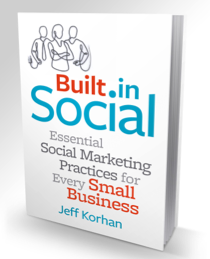
The process of writing is uniquely personal. Therefore, there are many idiosyncratic habits that many authors cling to.
That’s not what this article is about. These are breakthrough tips that will challenge what you have believed about the writing process.
I learned these tips on the way to writing my first traditionally published book, which was written in less than a month. In fact, they were a direct result of that intensive period of writing.
#1 – Writing is Easy – Editing is Hard
Writing a book is much more than writing, and that happens to be the first tip.
Once you have the basic outline for your book it’s time to start writing. It turns out the outline I created a full year before writing my book is nearly exactly what I followed when I finally got down to the writing, which happened to be a month before my publisher’s deadline.
Accept the fact that your first draft of your book will be crap and have to be rewritten. So, just get it done. As Seth Godin says, fail fast.
I wrote each chapter of my book in less than a day to meet that deadline. But that’s just the beginning.
What you will discover is writing is remembering. You’ll pull together all kinds of ideas; some will be brilliant and others will be edited out. By editing I’m talking about rewriting.
Having tried a number of methods, I learned that rewriting, again, and again, and again, is still much less time consuming than trying to clean up that original. If it starts as crap it will remain so until it is completely rewritten.
Editing is rewriting. It’s the hardest part of writing. Tweet this
#2 – Write Without a View
When I started writing my book my office had a beautiful view of a lake. That’s exactly why nothing happened, and how I ended up with such a tight deadline.
These days my office is a windowless room where I have no idea if its day or night, and that’s exactly what you need to if you are a writer.
In addition to avoiding distractions, when your energies are confined to a smaller space the focus on your writing intensifies.
Get rid of the view and watch your writing flow. Tweet this
#3 – Whether Flowing or Stuck, Keep Writing to Completion
Some days it was a challenge to write 2,500 words. Other days over 10,000 words flowed. The challenge is to keep your butt in the seat and accept what you create.
My goal every day was to write a chapter; and I did. I refused to leave that office until I had a complete piece, regardless of its quality. Finished is finished and it feels darn good.
That said, it is interesting that a longer piece of content is far more difficult to edit than one that is shorter. Why? We fall in love our ideas and dread the thought of tossing them out.
Whether you are writing the first draft or the fifth, keep going to completion. Tweet this
#4 – Question What Your Writing is About
It is much easier to write to a question than a subject heading. That’s how you draw out your best ideas and achieve clarity for your audience.
When you are writing, and especially when you are rewriting, ask questions.
- What is this about?
- What is the theme?
- Where is this going?
- What does this want to be when it grows up?!!
If you are at all like me, you may need to have a meltdown to make a breakthrough. Believe me, I had plenty. Thankfully meditation kept me sane. After that you will be at peace and create some of your best work.
Resistance to completing any project means its important to you. Tweet this
#5 – Ask for Feedback Only When You Are Finished
The expression that everyone has a book inside of them is probably true. However, your book will not come out if you invite others to the party. You have to do this alone (unless you have a co-author) to bring out your unique perspective.
When I was done with my rewriting I invited friends I respect to offer their feedback. It was all valuable. Even the feedback I did not agree with forced me to challenge my own thinking.
You will become even more confident about your writing when it is challenged. Although, getting that feedback too early means your work is no longer your work, and that will create needless doubt.
Stephen King says, “Write with the door closed; rewrite with it open.” Tweet this
This is more than great advice, it’s essential for getting YOUR book finished, not the book someone else wants you to write.
Are you planning to or already writing a book? Leave a comment and share.
About the Author: Jeff Korhan, MBA, is the author of Built-In Social: Essential Social Marketing Practices for Every Small Business – (Wiley 2013)
He helps mainstream businesses adapt their traditional growth practices to a digital world. Connect with Jeff on LinkedIn, Twitter, Facebook, and Google+.



